
|
|||
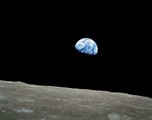
|
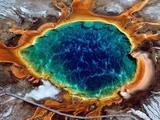
|
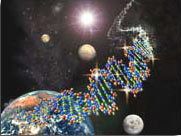
|
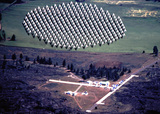
|
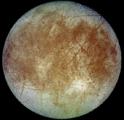
|
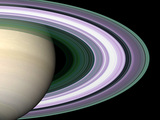
|

|

|
Syllabus - Spring 2023
- Tues 4:15-5:30 and Thurs 12:30-1:30 PM in Altschul 514 at Barnard
- lk157@columbia.edu
- Communications about the class, office hours, homeworks, quizzes etc will be by email
- Outlines of class lectures, and homeworks, will be posted on Canvas/Courseworks.
- T TH 2:40-3:55
- This is a live class, attendence is expected, (especially for quizzes and in-class activities)
- if you miss a class, it is your responsibility to get the material from a classmate
- This is an Interdisciplinary course so no textbook is perfect, with either choice you will need to use classnotes for some material.
- It is strongly recommended that you have access to one of these books (in these editions).
- You do not need access codes to online HW
- Copies on Reserve at the Barnard library
- Life in the Universe, 5e , by Bennett et al, 2022
- This has more on Biology than we cover in class, but fewer worked math examples and little historical astronomy
- OR
- 21c Astronomy, 6e by Kay, Palen, and Blumenthal, 2019.
- This is available used, as an ebook or a rental, and is in the FLI library.
- This has little Biology but more history, & Physics & can be used for a second course in Astronomy
- ASTR BC 1753 satisfies the Barnard Science SCI and Thinking Quantitatively requirements and can be used towards the Columbia College science requirement. ASTR BC 1753 along with the 1 point lab course Astr UN1903 can be applied towards the Barnard lab science LAB requirement.
- Labs meet in the evenings, there are sections on M and W, and will begin on Jan 23.
- Its OK to take the lab in a future semester
Basic Structure
This interdisciplinary introductory course focuses on the subject of Life in the
Universe. We will study historical astronomy, gravitation and planetary
orbits, the discoveries of extrasolar planets, the origin of the chemical elements, the origin of life on Earth,
the evolution and exploration of the Solar System, global climate change on Venus, Mars and Earth, the Search for Earthlike
planets, and the Search for Extraterrestrial Life (SETI).
Office Hours
Communications
Lectures
Textbook
Distribution Requirements
Learning Goals - Students who successfully complete this course will:
-
understand how scientists are studying the question of Life in
the Universe
understand how Earth is habitable in ways the rest of the Solar
System is not
learn about the discoveries of other planets in our Galaxy
learn to think critically and quantitatively about some contemporary
scientific problems
Labs
-
Students who want laboratory credit should get on the waitlist
for the one point course ASTR UN1903.
Teaching Assistants
-
The TAs for this class are Michael Messere and James Sullivan. Office Hours
in Pupin 1332, Mon 12-1, (James) and Weds 1:30-2:30 (Michael)
Homework:
-
Problem sets will be due at classtime (paper or posted TBD)
Late HW will NOT be accepted after the solutions are posted- the rest of the class needs them to study for quizzes!
Students may work with other
students together on the homework, but the writeups submitted must be
individual work in individual words, not duplicated/copied and pasted.
HW is required; you
cannot pass this course by exam grades alone.
The lowest HW score (including one not submitted for any reason) will be dropped;
the remaining scores will count for 20% of your final grade.
In-class projects:
-
These will be in-class collaborative exercises using computer simulations or paper exercises,
and will count for 10% of the final grade.
Quizzes:
-
There will be 4 short quizzes.
The lowest score will be dropped; this includes quizzes missed for
any reason. Makeup quizzes are not offered. The remaining 3 will count for 15% of your final grade
Exams:
-
One midterm exam, on Mar 2 and the final is during the scheduled time on THURS MAY 11 from 1-4 PM
The midterm exam will count for 20%, and the final exam for 35%.
-
If you believe you may encounter barriers to the academic environment due to a documented disability or
emerging health challenges, please feel free to contact me and or Disability Services on your campus (CARDS at Barnard, DS at Columbia).
Students who need disability-related test or classroom accommodations must be registered in advance with these Services.
Approximate Schedule Spr 2023
| Dates | Topics | LIU 5e | 21 C. Astro 6e |
|---|---|---|---|
| Jan 17 | Introduction, Overview, time, calendars |
Chap 1 | Chap 1, 2.4 |
| Jan 19, 24 | Lunar Phases, Eclipses, Planets, Seasons, Greeks | 2, notes | 2 |
| Jan 26 | Copernicus, Tycho, Kepler | 2.1-2.3, notes | 3.1-3.2 |
| Jan 31 | Galileo, Newton's Laws of Motion | notes | 3.3-3.4 |
| Feb 2 | Newton and Gravity | 2.4 | 4 |
| Feb 7, 9 | Universal Context of Life | 3 | 1.1, 5.1-5.2, 7.1-7.4 |
| Feb 14, 16, 21 | Discovering Exoplanets | 11.2 | 5.3-5.5, 7.5, Ch 7 & 13 Origins |
| Feb 23, 28 | History of the Earth | 4.1-4.3 | 8.1-8.5 |
| Mar 2 | MIDTERM | ||
| Mar 7 | Life on Earth | parts of 5, 6 | 24.1-24.2, notes |
| Mar 9 | Paleoclimate | 4.5 | 9.1-9.3, 9.5 |
| Mar 14, 16 | SPRING BREAK | ||
| Mar 21 | Global Warming | 4.5 | 9.1-9.3, 9.5 |
| Mar 23 | Exploring Planetary Atmospheres with JWST | notes | notes |
| Mar 28 | Simulating the Universe on Your Computer | ||
| Mar 30 | FInish Climate Change; Ozone Hole | notes | |
| Apr 4 | Sputnik; Lunar Exploration | 6.4 | 7.4 |
| Apr 6, 11 | Venus, Mars | 10.2, 8 | 8.6, 9.1-9.2, 9.4 |
| Apr 13 | Mars, Space Colonization | 10.4, 13.1 | |
| Apr 18 | Moons of Jupiter and Saturn | 9 | 11.1-11.2, Ch 11 Origins |
| Apr 20, 25 | Special Relativity & Interstellar Travel | 13.1-13.2 | 18.1-18.2 |
| Apr 25, 27 | SETI, UFOs, | 12 | 24.3-24.4 |
| May 11 | FINAL EXAM 1-4 PM |
Tentative Due dates
Homework Assignments
| Homework 1 | Feb 2 |
|---|---|
| Homework 2 | Feb 14 |
| Homework 3 | Feb 28 |
| Homework 4 | Apr 6 |
| Homework 5 | Apr 20 |
| Homework 6 | May 1 |
| Extra Credit | accepted thru May 1 |
Quizzes
| Quiz 1 | Feb 7 |
|---|---|
| Quiz 2 | Feb 16 |
| Midterm | Mar 2 |
| Quiz 3 | Apr 18 |
| Quiz 4 | Apr 27 |
| Final | May 11 1:10-4 PM |

Astronomy Laboratory
Spring 2023
Labs will start on Jan 23